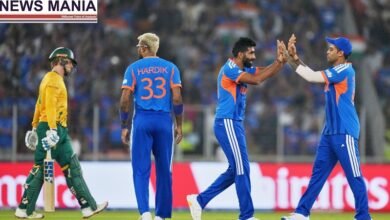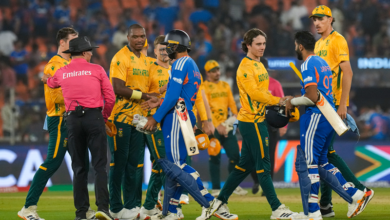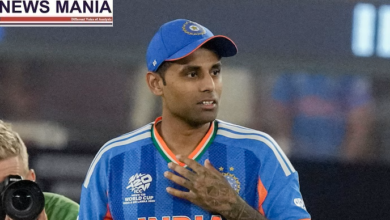Hardik Pandya and Natasa Stankovic Announce Separation And Navigating Divorce and Women’s Legal Rights in India

News Mania Desk/Agnibeena Ghosh/19th July 2024
Indian all-rounder Hardik Pandya and actor Natasa Stankovic have decided to end their relationship. The couple, who got engaged in January 2020 and share a three-year-old son named Agastya, confirmed their separation through an announcement on Instagram. “After four years together, Natasa and I have mutually decided to part ways. We gave it our all, but we believe this is best for both of us. This was a tough decision, given the joy, mutual respect, and companionship we shared,” Hardik wrote in his Instagram post.
This announcement puts an end to months of speculation about their relationship status, shedding light on the emotional and complex nature of divorce. In India, the process can be particularly challenging, requiring a thorough understanding of legal rights and entitlements, especially for women. Key aspects such as alimony and property division play crucial roles in ensuring a fair outcome.
In cases where both spouses have jointly paid for and own a property, the wife can claim her share from the husband’s portion in addition to her 50% share. Raj Lakhotia, Founder of Dilsewill, explains that if a wife is separated or abandoned by her husband, she can claim her share from his portion, besides the 50% share in her name. Additionally, she retains the right to reside in the property until the divorce is finalized.
When the property is solely in the husband’s name and funded by him, it is considered his self-acquired property. However, in the event of separation, the wife can claim maintenance as she is considered a class I legal heir. If the wife has financially contributed to a property registered in the husband’s name, she must provide proof of her contributions to stake a claim. According to Lakhotia, the husband can claim the property unless the wife can prove her contribution to the purchase, in which case she can stake a claim.
Properties purchased by the wife with her own funds are entirely hers. She has full autonomy to sell, retain, or gift these properties. Lakhotia notes that any property a woman has purchased with her own funds before or after marriage will be hers, and she can manage it as she wishes.
During a legal separation, a woman can claim maintenance under Section 125 of the Indian Penal Code for herself and her children. This includes interim maintenance, which is paid by the husband from the date of filing for maintenance until the court’s decision, and permanent maintenance provided under Section 25 of the Hindu Adoption and Maintenance Act 1956, either as a lump sum or monthly payment fixed by the court.
Alimony in India is guided by several laws, including the Hindu Marriage Act and the Special Marriage Act. Courts consider various factors, such as the couple’s standard of living, the duration of the marriage, and the needs of any children, to determine alimony. Even a working woman might receive alimony if there’s a substantial income disparity between the spouses. Piyush Tiwari, Associate at TAS Law, explains that the goal is to ensure neither spouse faces financial difficulties after the separation.
Safeguarding assets in the event of a divorce involves meticulous planning. Maintaining separate bank accounts, keeping detailed records of pre-marriage assets, and creating trusts can help distinguish personal wealth from marital property. Tiwari advises that detailed records of assets owned before marriage, using trusts to manage assets, and maintaining separate bank accounts can help distinguish personal wealth from marital property.
Additionally, prenuptial agreements, though not common or always enforceable in India, can outline financial arrangements and protect individual assets. Tiwari explains that a prenuptial agreement, a contract outlining how finances will be handled in a split, though not common in India, is a powerful tool if both partners agree to it before marriage.
Women can claim Streedhan, which includes all gifts received before, during, and after marriage. This encompasses jewelry, shares, bonds, and other valuables. The Hindu Succession Act and the Hindu Marriage Act provide legal avenues for women to reclaim their Streedhan from in-laws if necessary.
The separation of Hardik Pandya and Natasa Stankovic highlights the importance of understanding legal rights and navigating the complexities of divorce, ensuring fair outcomes for both parties.






